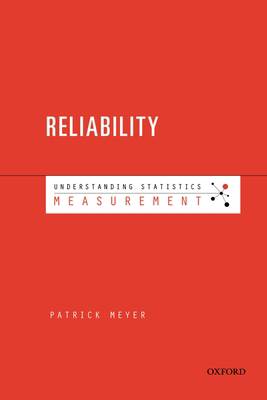
- Retrait gratuit dans votre magasin Club
- 7.000.000 titres dans notre catalogue
- Payer en toute sécurité
- Toujours un magasin près de chez vous
- Retrait gratuit dans votre magasin Club
- 7.000.000 titres dans notre catalogue
- Payer en toute sécurité
- Toujours un magasin près de chez vous
Description
This is a title in our Understanding Statistics series, which is designed to provide researchers with authoritative guides to understanding, presenting and critiquing analyses and associated inferences. Each volume in the series demonstrates how the relevant topic should be reported -- including detail surrounding what can be said, and how it should be said, as well as drawing boundaries around what cannot appropriately be claimed or inferred. This volume addresses reliability, which is a fundamental aspect of any social science study that involves educational or psychological measurement. It not only has implications for the quality of test scores themselves,
but also any statistical analysis conducted using those scores. Topics addressed in this book include cover three different types of reliability methods and appropriate standard errors of measurement: classical test theory methods, decision consistency indices, and generalizability theory coeffcients. After a brief introduction to the topic, the author outlines how to report reliability in professional journal articles. Meyer is known for his clear, accessible writing; like all books in this series, this volume includes examples of both good and bad write-ups for methods sections of journal articles.
but also any statistical analysis conducted using those scores. Topics addressed in this book include cover three different types of reliability methods and appropriate standard errors of measurement: classical test theory methods, decision consistency indices, and generalizability theory coeffcients. After a brief introduction to the topic, the author outlines how to report reliability in professional journal articles. Meyer is known for his clear, accessible writing; like all books in this series, this volume includes examples of both good and bad write-ups for methods sections of journal articles.
Spécifications
Parties prenantes
- Auteur(s) :
- Editeur:
Contenu
- Nombre de pages :
- 160
- Langue:
- Anglais
- Collection :
Caractéristiques
- EAN:
- 9780195380361
- Date de parution :
- 30-04-10
- Format:
- Livre broché
- Format numérique:
- Trade paperback (VS)
- Dimensions :
- 137 mm x 206 mm
- Poids :
- 181 g







